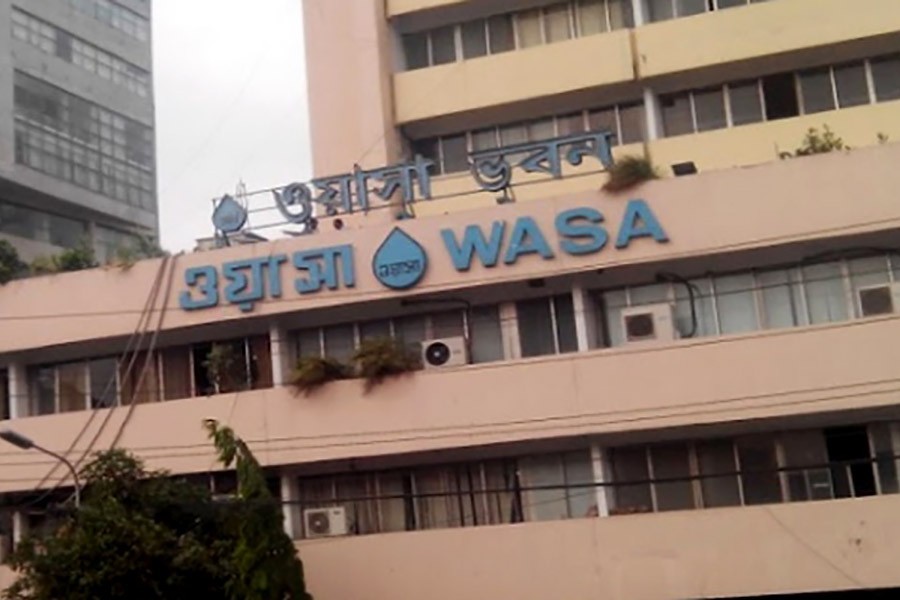At a time when the majority of the people's hardship has increased manifold under the influence of coronavirus regime, the utility services are playing the proverbial Sword of Democles. First, it was the Bangladesh Power Development Board (BPDB) that played a trick on electricity subscribers: it prepared enhanced bills twice, thrice or many times over the actual rate without checking the meters at their residences, offices or business houses. True, in the early months of the epidemic, meter reading proved difficult and in certain cases impossible. But this is no licence for coming up with fictitious bills. And lo! Such atrocious bills were prepared allegedly with an ill motive of receiving bonuses from increased revenue. Now comes the turn of the Water and Sewerage Authority (WASA) in different city corporations. Notwithstanding the coronavirus pandemic, the central authority raised the price of piped water supplies by 25 per cent from April 1 last. It is fun for the utility services but cruelty to subscribers.
Against such an unwelcome background, the High Court has issued a rule on a public interest litigation submitted by a Supreme Court lawyer, asking the government and WASA to explain why its decision in favour of 25 per cent price hike of water should not be declared illegal and unconstitutional. The appellant has rightly cited in his writ petition the extreme financial hardship facing people on account of the pandemic and termed the decision of price hike cruel. He also argued that WASA cannot raise price of water by more than 5.0 per cent under section 22 of the Dhaka Water Supply and Sewerage Authority Act, 1996. Any such price hike, moreover, has to be effected in consultation with the government, the petitioner argued.
Evidently, the rationale behind the complainant's arguments gain further ground when the volatility of the kitchen market is taken into consideration. Vegetables, the main dishes of the low- and middle-income segments of society, are atrociously pricier on account of the damage wrought by repeated floods and rain in the belts where such produces are mostly grown. Above everything else, prices of all varieties of rice have also gone up. Even the millers are defying the price limits set by the government. The situation is so critical that the authorities are contemplating cancelling licences of those millers who are not complying with the government decision. In a situation like this, price hike of water as high as 20 per cent is simply unwarranted.
Besides, WASA does not supply pure drinking water like their counterparts in the Western world do. The supply line is moreover so outdated that at times muddy or contaminated water come out of faucets. Wastage of water and illegal connections to some areas, particularly slums, make the matter worse. Like the BPDB, the WASA also suffers from system loss and the subscribers are made to pay for their inefficiency and corruption. There is a need for putting the utility services' acts together before forcing subscribers to pay more.


